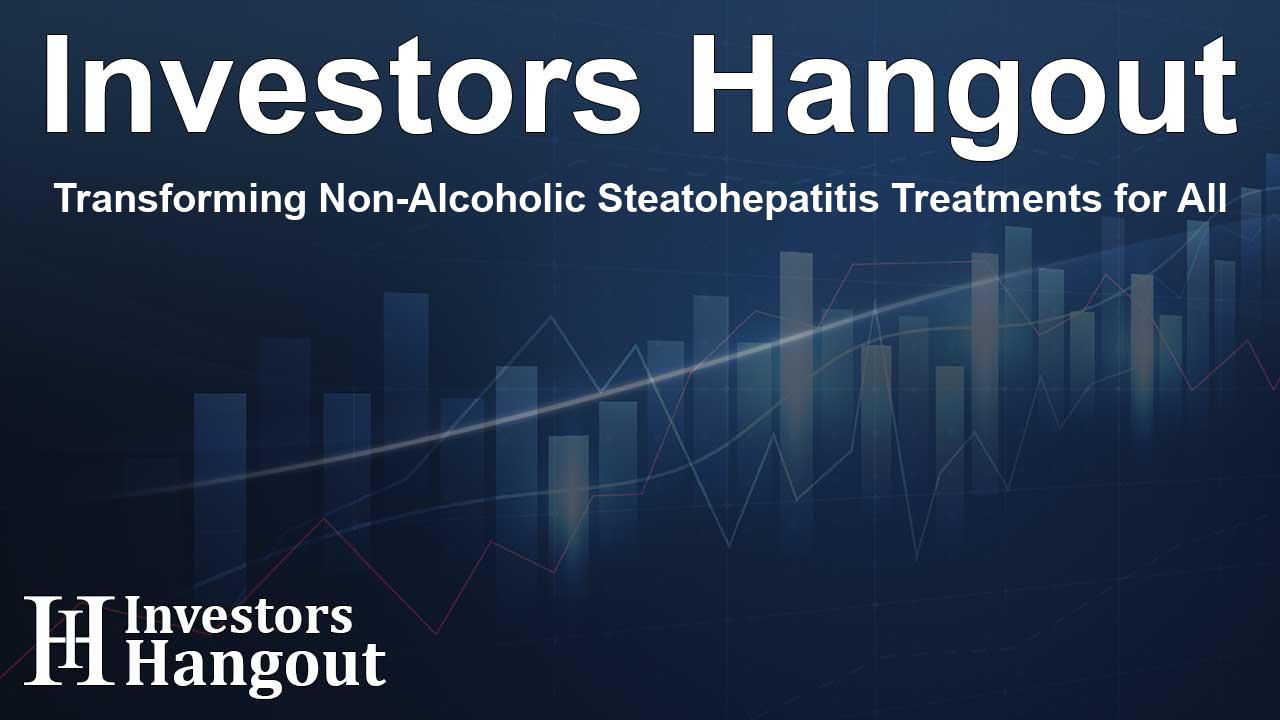Transforming Non-Alcoholic Steatohepatitis Treatments for All

Overview of Non-Alcoholic Steatohepatitis Treatment Market
The global market for non-alcoholic steatohepatitis (NASH) treatment is anticipated to witness remarkable growth in the coming years. Recent research indicates that the market was valued at approximately USD 7.75 billion in 2024 and is projected to reach around USD 92.5 billion by 2034. This growth represents a substantial compound annual growth rate (CAGR) of 28.14%, influenced heavily by the increasing incidence of obesity, type 2 diabetes, and various metabolic disorders.
Driving Factors Behind Market Growth
The rise in non-alcoholic fatty liver disease (NAFLD), especially its progression to NASH, is a result of a combination of lifestyle factors such as poor diet and sedentary habits. As awareness surrounding these conditions grows, so do the opportunities for developing effective therapies. This trend is further bolstered by innovations in drug approvals and therapies aimed at addressing NASH more effectively.
Increasing Awareness and Diagnosis
The expanding array of diagnostic methods allows for earlier identification and treatment of NASH cases. Non-invasive screenings, along with biomarkers and advanced imaging technologies, are ensuring that healthcare professionals can address the disease at its nascent stages, leading to better outcomes for patients.
Therapeutic Innovations
Among the various treatments, the vitamin E and pioglitazone segment has made significant strides in establishing efficacy and safety, helping manage liver enzymes and improving histopathology for patients. The recent approval of semaglutide, a GLP-1 receptor agonist, for treating NASH also highlights the potential for expanding treatment options in this emerging market.
Segment Analysis: Insights into Drug Efficacy
The market consists of multiple therapeutic segments, each with its unique dynamics. Notably, drug classes like semaglutide and vitamin E & pioglitazone have been at the forefront. More patients are displaying an inclination toward these medications due to their clinical efficacy and positive metabolic effects observed in recent studies.
Market Leaders and Innovations
Key market players such as Novo Nordisk, AstraZeneca, and Eli Lilly are pivotal in this ecosystem, driving research and development activities aimed at launching new therapeutics for NASH. The landscape is evolving, characterized by a robust pipeline of drugs in late-phase clinical trials, promising to deliver safe and effective treatments to patients.
Regional Growth: Trends Across the Globe
Currently, North America leads the NASH treatment market, commanding a 79% share as of 2024. This dominance is attributed to a robust healthcare infrastructure, a comprehensive focus on research, and strong regulatory frameworks that hasten the approval of new therapies. Meanwhile, the Asia-Pacific region showcases the fastest growth trajectory, spurred by rising obesity rates and the burgeoning diabetes epidemic, especially in countries like China and India.
Challenges in the Market
Despite the positive outlook, challenges persist. The complexity of NASH, involving interlinked metabolic, inflammatory, and fibrotic pathways, necessitates more extensive research to ensure the safety and efficacy of new treatments. Physicians and patients alike are cautious, demanding approved therapies backed by sufficient long-term safety data.
Future Outlook for NASH Treatments
As the demand for affordable treatment options rises, especially in developing nations, the market is expected to adapt by introducing a combination of therapies tailored to address the multifaceted nature of NASH. The goal remains to enhance patient quality of life while managing costs effectively, as evidenced by the increasing market interest in developing generics and lower-cost alternatives for innovative drugs.
Lastly, the ongoing global investments in healthcare infrastructure and service access are likely to play a crucial role in supporting the NASH treatment market's continued growth while ensuring that innovative therapies reach a broader patient population.
Frequently Asked Questions
What is non-alcoholic steatohepatitis (NASH)?
NASH is a severe form of non-alcoholic fatty liver disease characterized by liver inflammation and potential progression towards cirrhosis or liver cancer.
What are the leading therapies currently available for NASH?
Key treatments include vitamin E and pioglitazone, with semaglutide being a notable new entrant gaining attention for its efficacy in managing the disease.
Why is the NASH market expected to grow rapidly in the coming years?
The increase in metabolic disorders, coupled with innovative therapeutic approvals, is significantly driving market growth.
How does early diagnosis impact NASH treatment outcomes?
Early diagnosis typically leads to more effective treatment, preventing disease progression and improving overall patient outcomes.
What are some challenges faced in NASH treatment development?
Challenges include the complex nature of the disease, the need for long-term safety data for new therapies, and ensuring access to treatment in lower-income regions.
About The Author
Contact Addison Perry privately here. Or send an email with ATTN: Addison Perry as the subject to contact@investorshangout.com.
About Investors Hangout
Investors Hangout is a leading online stock forum for financial discussion and learning, offering a wide range of free tools and resources. It draws in traders of all levels, who exchange market knowledge, investigate trading tactics, and keep an eye on industry developments in real time. Featuring financial articles, stock message boards, quotes, charts, company profiles, and live news updates. Through cooperative learning and a wealth of informational resources, it helps users from novices creating their first portfolios to experts honing their techniques. Join Investors Hangout today: https://investorshangout.com/
The content of this article is based on factual, publicly available information and does not represent legal, financial, or investment advice. Investors Hangout does not offer financial advice, and the author is not a licensed financial advisor. Consult a qualified advisor before making any financial or investment decisions based on this article. This article should not be considered advice to purchase, sell, or hold any securities or other investments. If any of the material provided here is inaccurate, please contact us for corrections.
